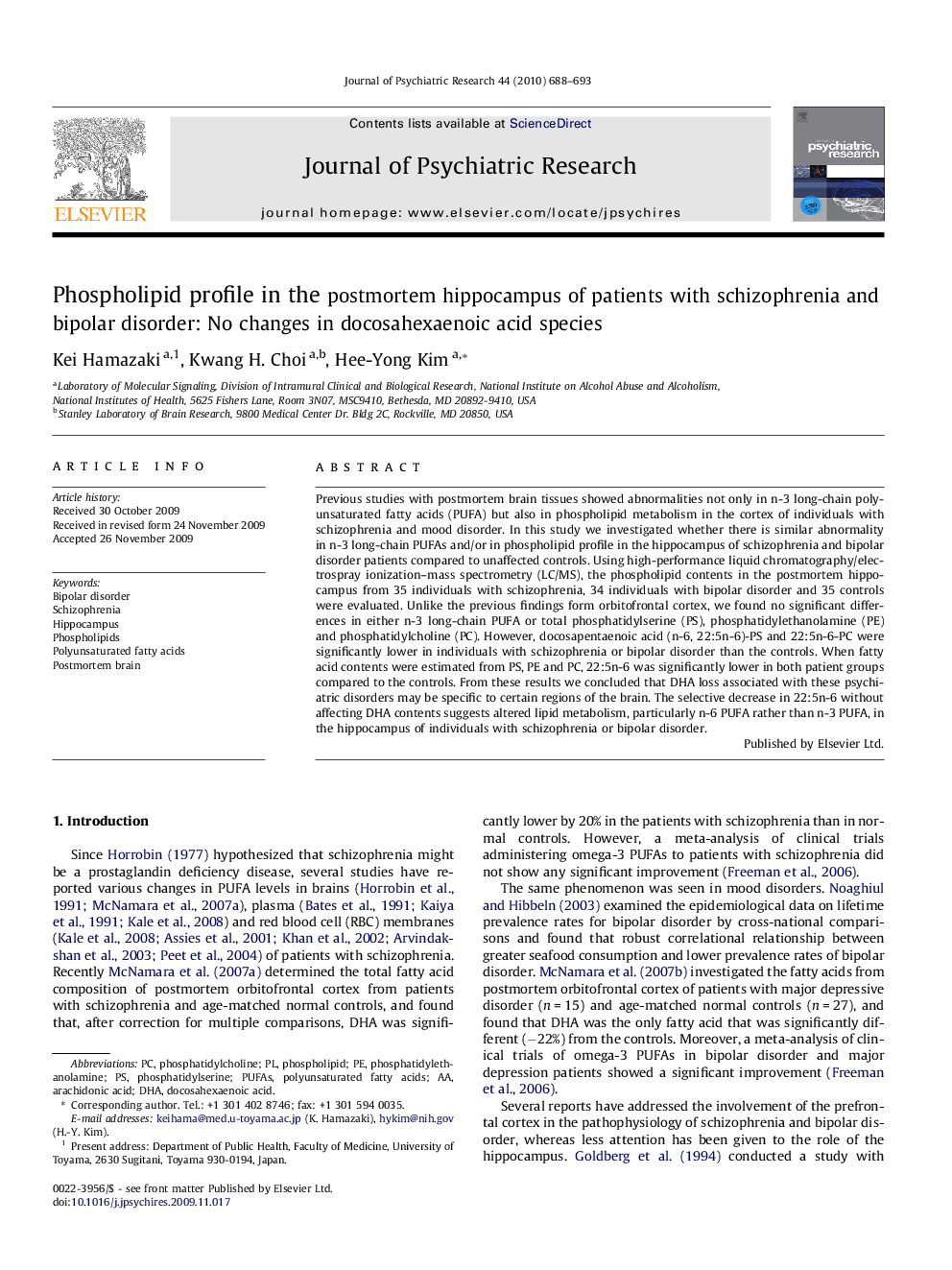| Article ID | Journal | Published Year | Pages | File Type |
|---|---|---|---|---|
| 327138 | Journal of Psychiatric Research | 2010 | 6 Pages |
Previous studies with postmortem brain tissues showed abnormalities not only in n-3 long-chain polyunsaturated fatty acids (PUFA) but also in phospholipid metabolism in the cortex of individuals with schizophrenia and mood disorder. In this study we investigated whether there is similar abnormality in n-3 long-chain PUFAs and/or in phospholipid profile in the hippocampus of schizophrenia and bipolar disorder patients compared to unaffected controls. Using high-performance liquid chromatography/electrospray ionization–mass spectrometry (LC/MS), the phospholipid contents in the postmortem hippocampus from 35 individuals with schizophrenia, 34 individuals with bipolar disorder and 35 controls were evaluated. Unlike the previous findings form orbitofrontal cortex, we found no significant differences in either n-3 long-chain PUFA or total phosphatidylserine (PS), phosphatidylethanolamine (PE) and phosphatidylcholine (PC). However, docosapentaenoic acid (n-6, 22:5n-6)-PS and 22:5n-6-PC were significantly lower in individuals with schizophrenia or bipolar disorder than the controls. When fatty acid contents were estimated from PS, PE and PC, 22:5n-6 was significantly lower in both patient groups compared to the controls. From these results we concluded that DHA loss associated with these psychiatric disorders may be specific to certain regions of the brain. The selective decrease in 22:5n-6 without affecting DHA contents suggests altered lipid metabolism, particularly n-6 PUFA rather than n-3 PUFA, in the hippocampus of individuals with schizophrenia or bipolar disorder.
